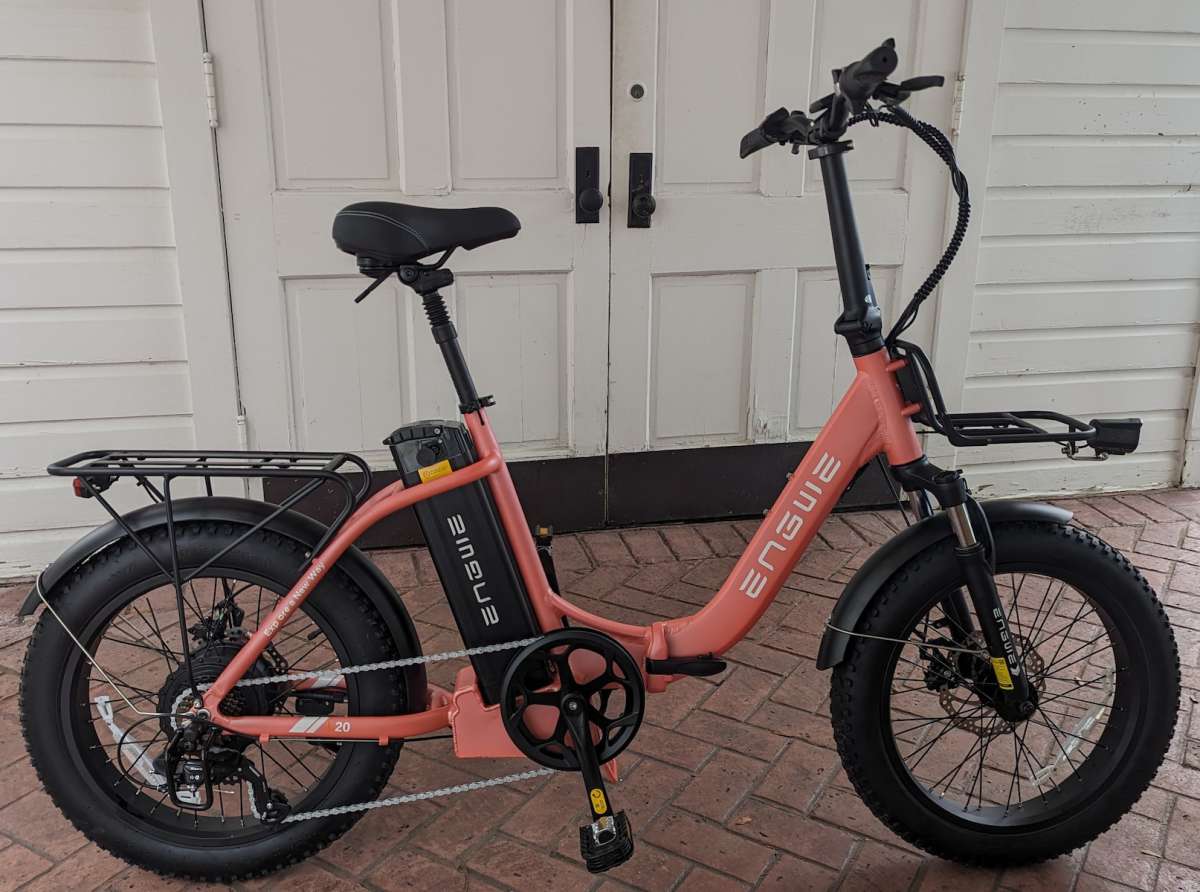
REVIEW – One of the most interesting aspects of writing reviews is seeing how products evolve. It’s not often that one gets to review the same product twice, but that’s the case here. Last year, I reviewed the Engwe L20 e-bike. The bike was OK, but there were some obvious misses. This year’s version does what is often impossible. It fixes the issues of the previous version, adds extensive new features, and drops the price by $200!
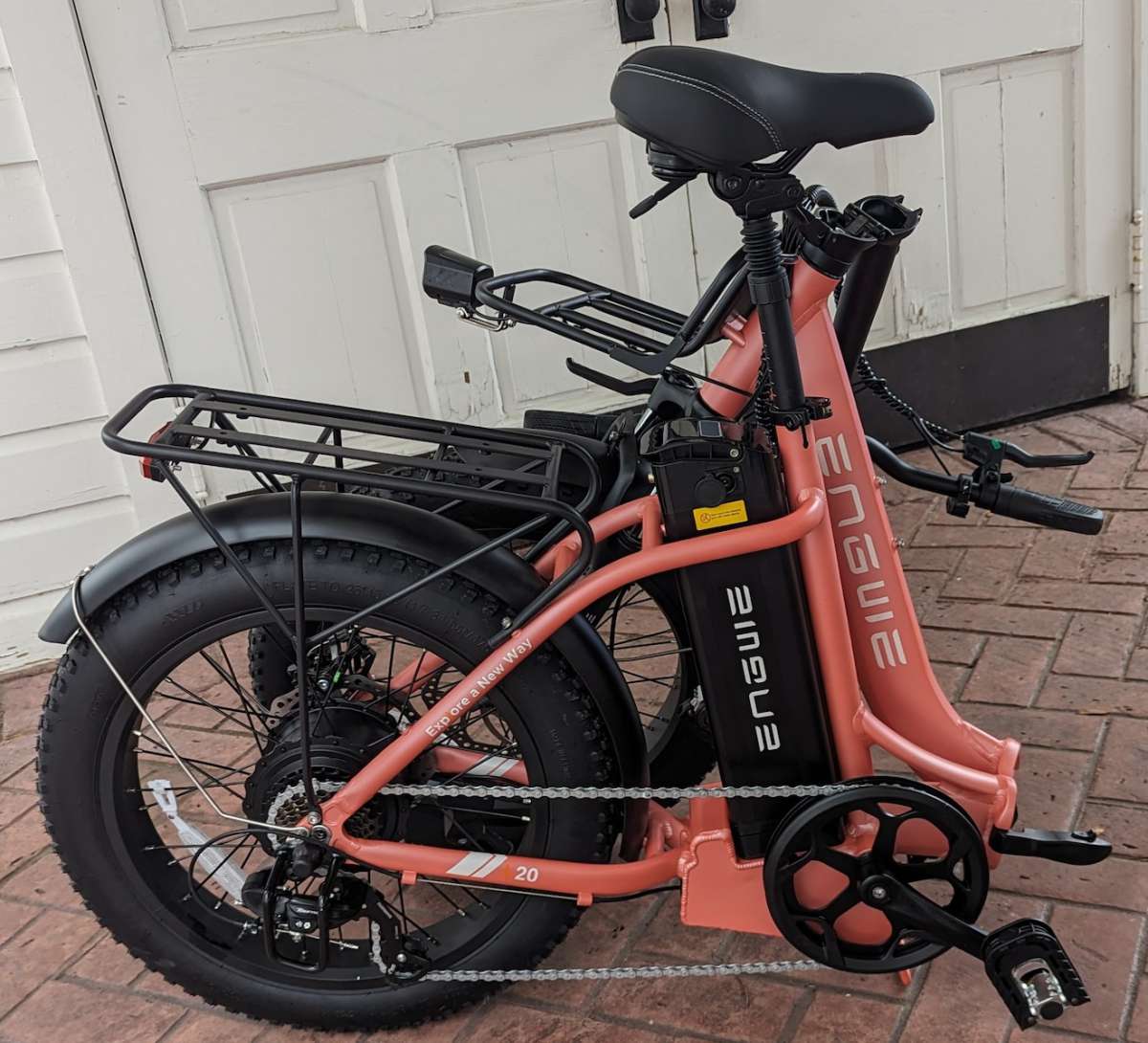
What is it?
The Engwe L20 2.0 is a fat-tired folding e-bike with great features at a value price.
What’s in the box?
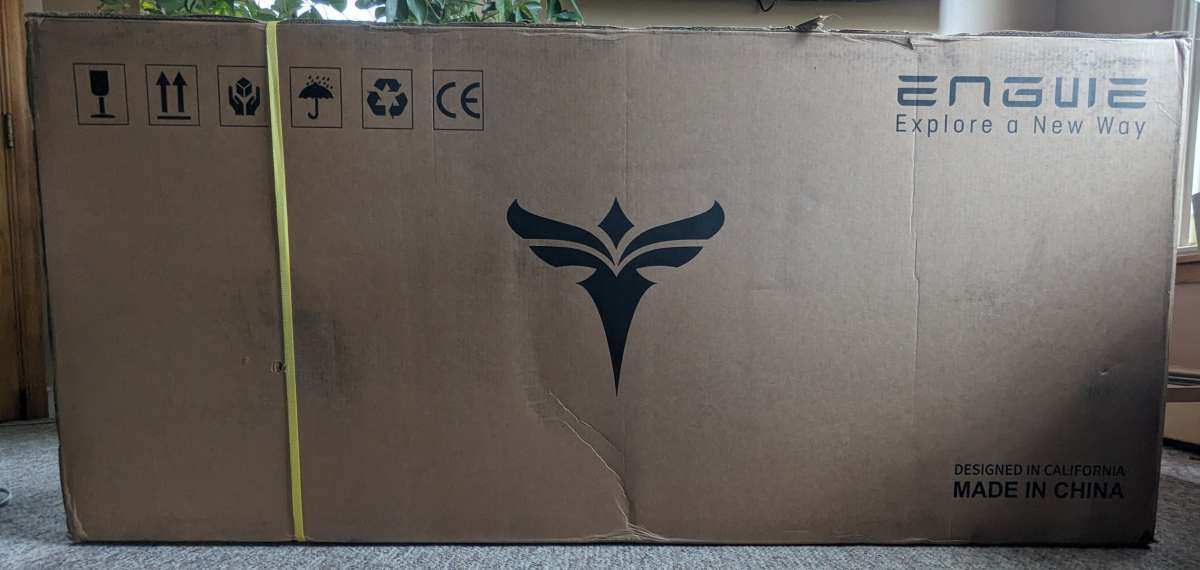

- The bike, well packed
- Bike manual
- Small took kit
- Charger
- Charger manual
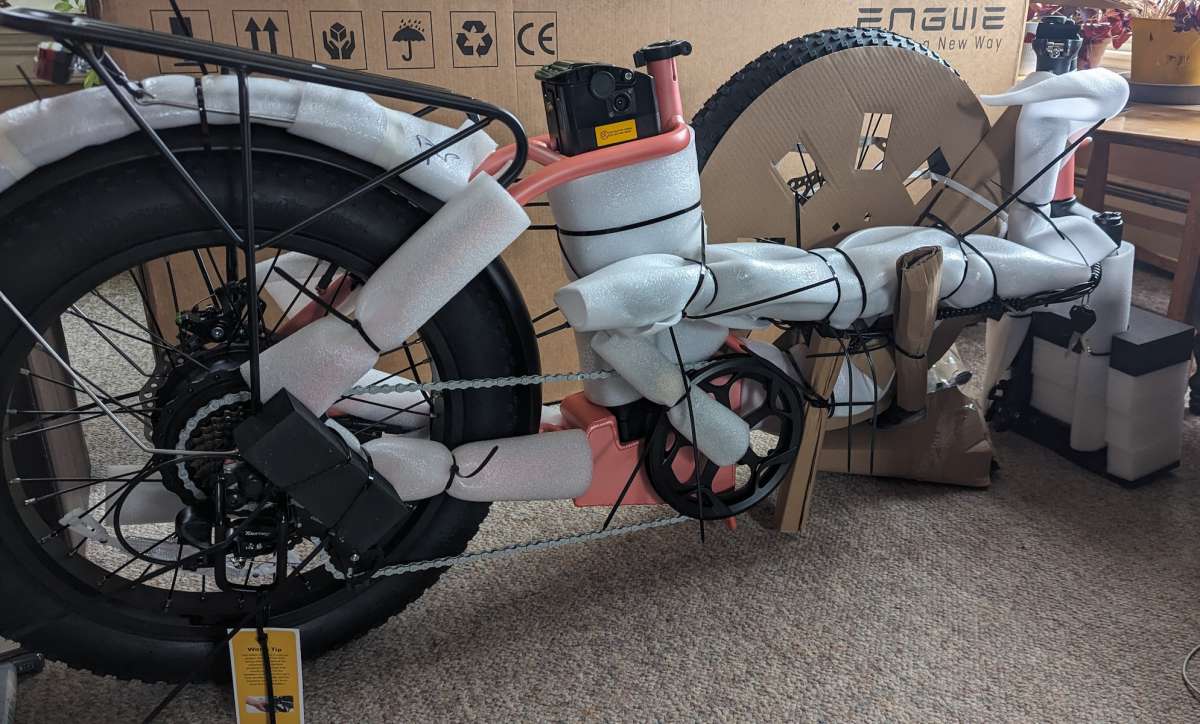
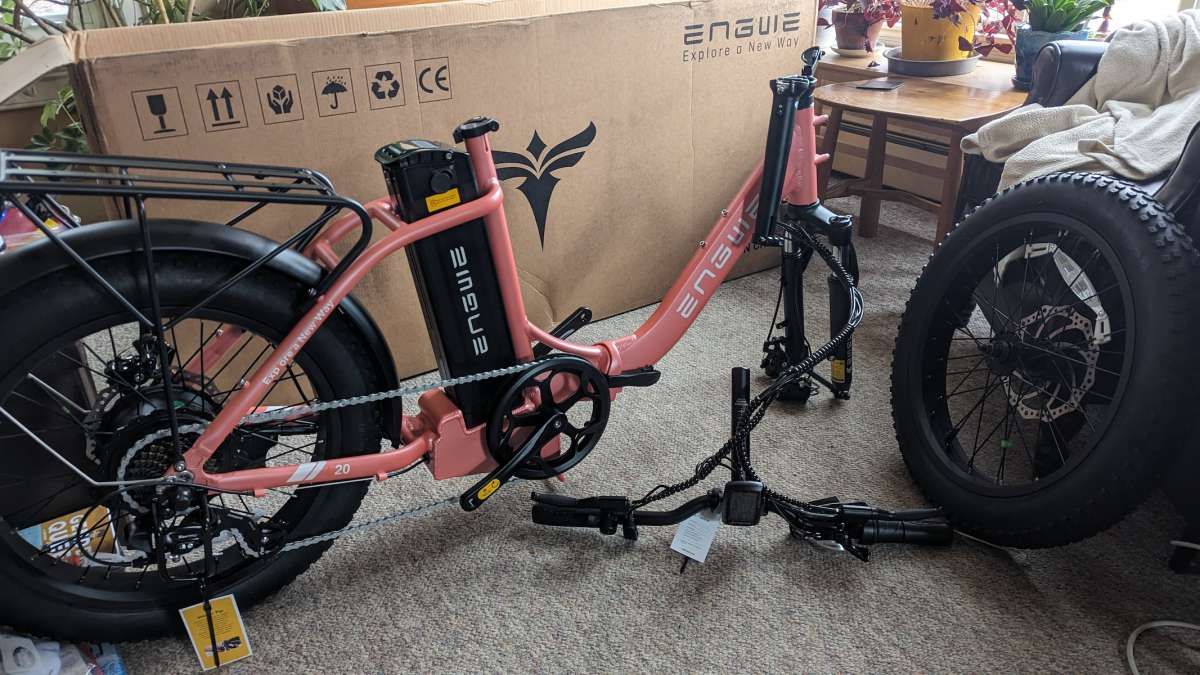
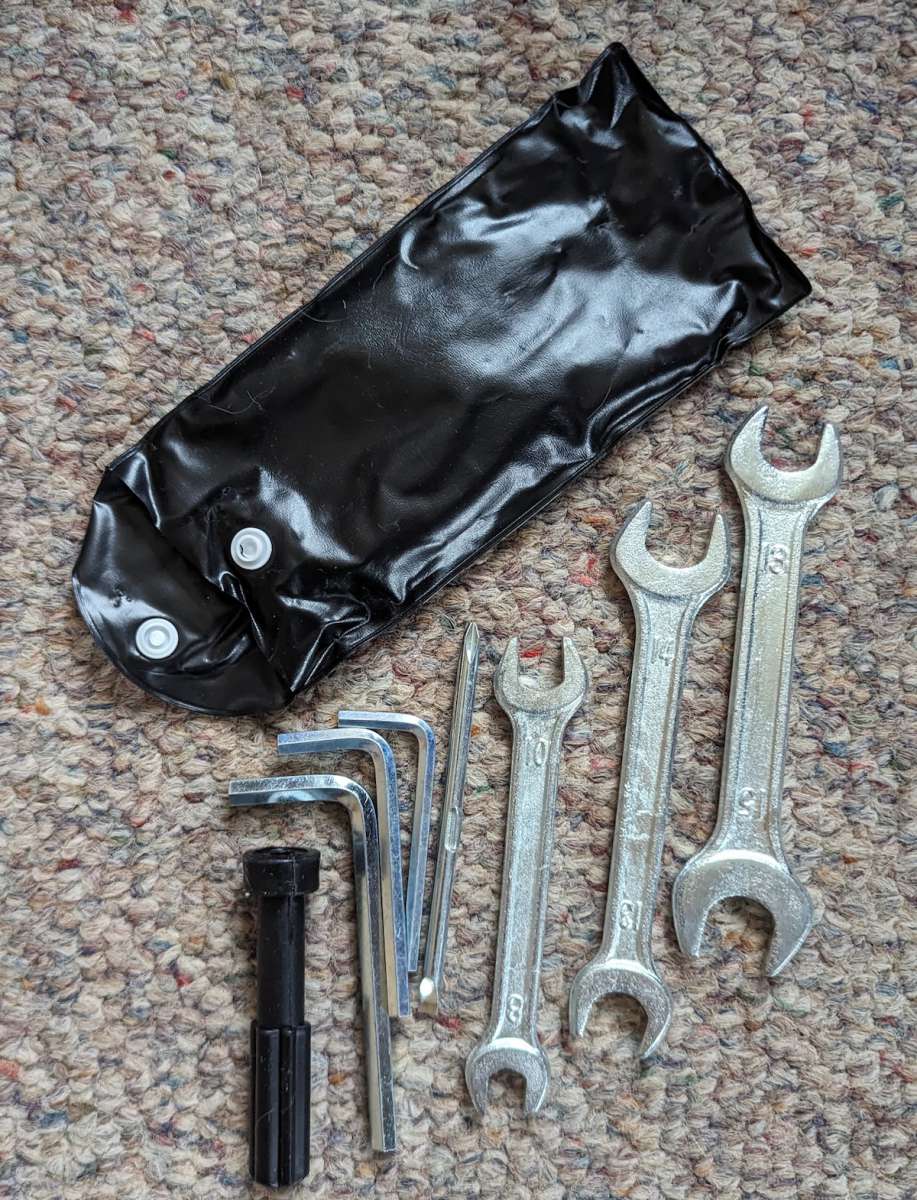
Tech specs
- Motor: 750W 52V 75 N.m torque, 1125W peak power
- Suspension: Front suspension fork, suspension seatpost
- Battery: 52V 13Ah Lithium-Ion battery
- Accessories: Front and back racks
- Foldability: Yes – foldable
- Weight: 68.3 lbs
- Display: Color LCD
- Tires: 20” x 3”
- Max Speed: 20 mph under throttle alone, 28 mph while pedaling
- Frame materials: 6062 Aluminum
- Recommended Height: 5’8” to 6’5”
- Charge Time: 6-7 hours
- Miles per charge: 80 miles (claimed)
- Pedal Assist: 5 modes
Design and features
The design and features of the Engwe L20 2.0 fat tire e-bike are similar to the original L20 reviewed here. So I’ll highlight the differences.
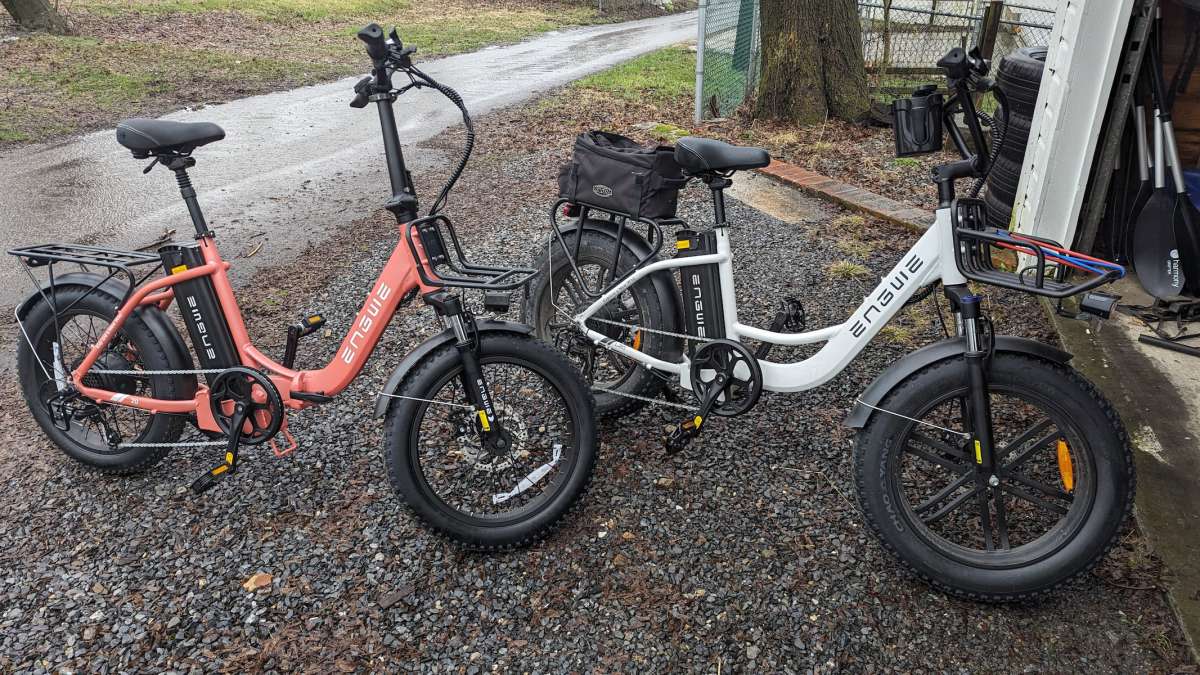
Foldability: The original Engwe L20 fat tire e-bike did not fold, and the new one does. And it folds quite easily in three simple steps. First, fold the handlebar down. Second, fold the pedals up. Third, fold the bike in half. The foldability comes at a small cost, which I’ll highlight below.
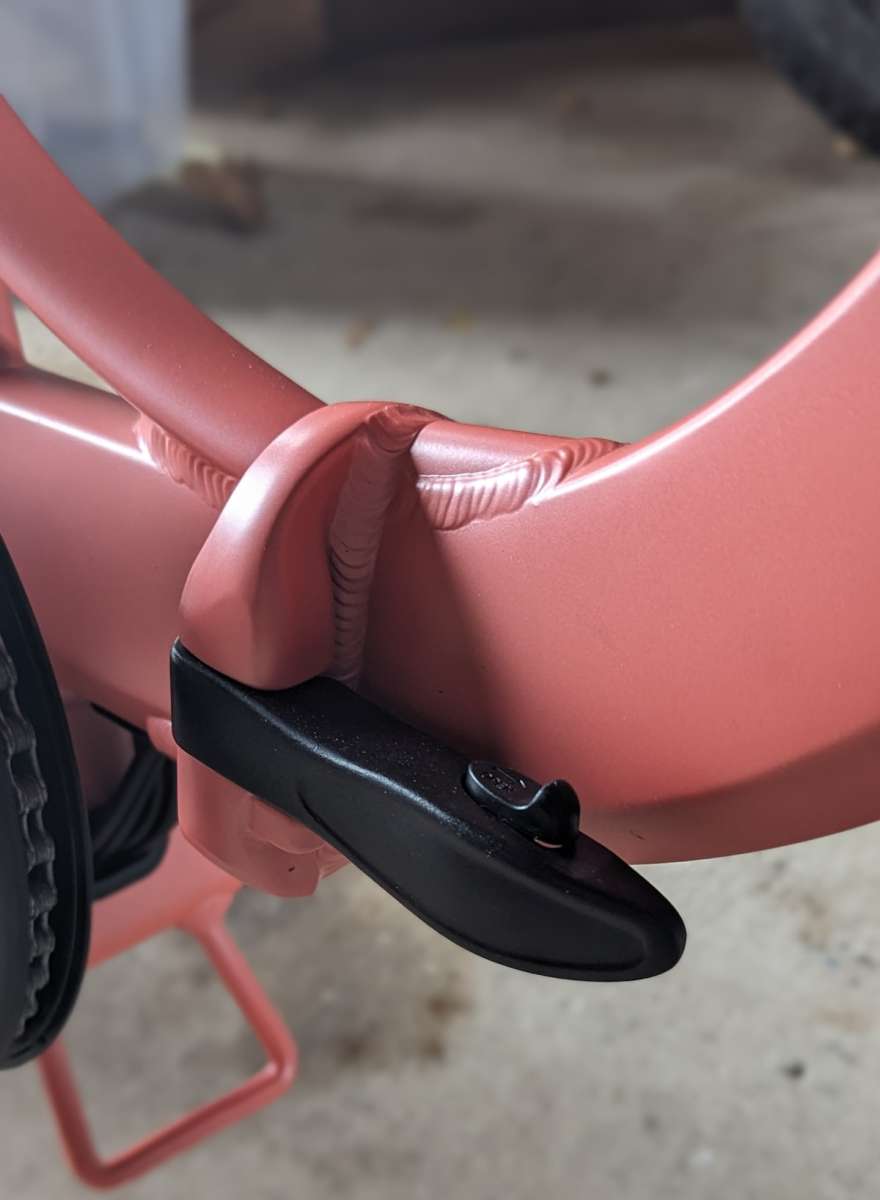
Display and Controls: One of my biggest peeves about the previous L20 was the display and e-bike controls. On most bikes, the display and controls are separate. On the original L20, they were built into the same very small monochrome unit that sat by the left hand grip. The readout was small and dim, and the buttons were tiny. It worked, but barely. On the L20 2.0, the display is large, colorful, and centrally mounted, and the controls are large and intuitive, and mounted near the left hand grip.
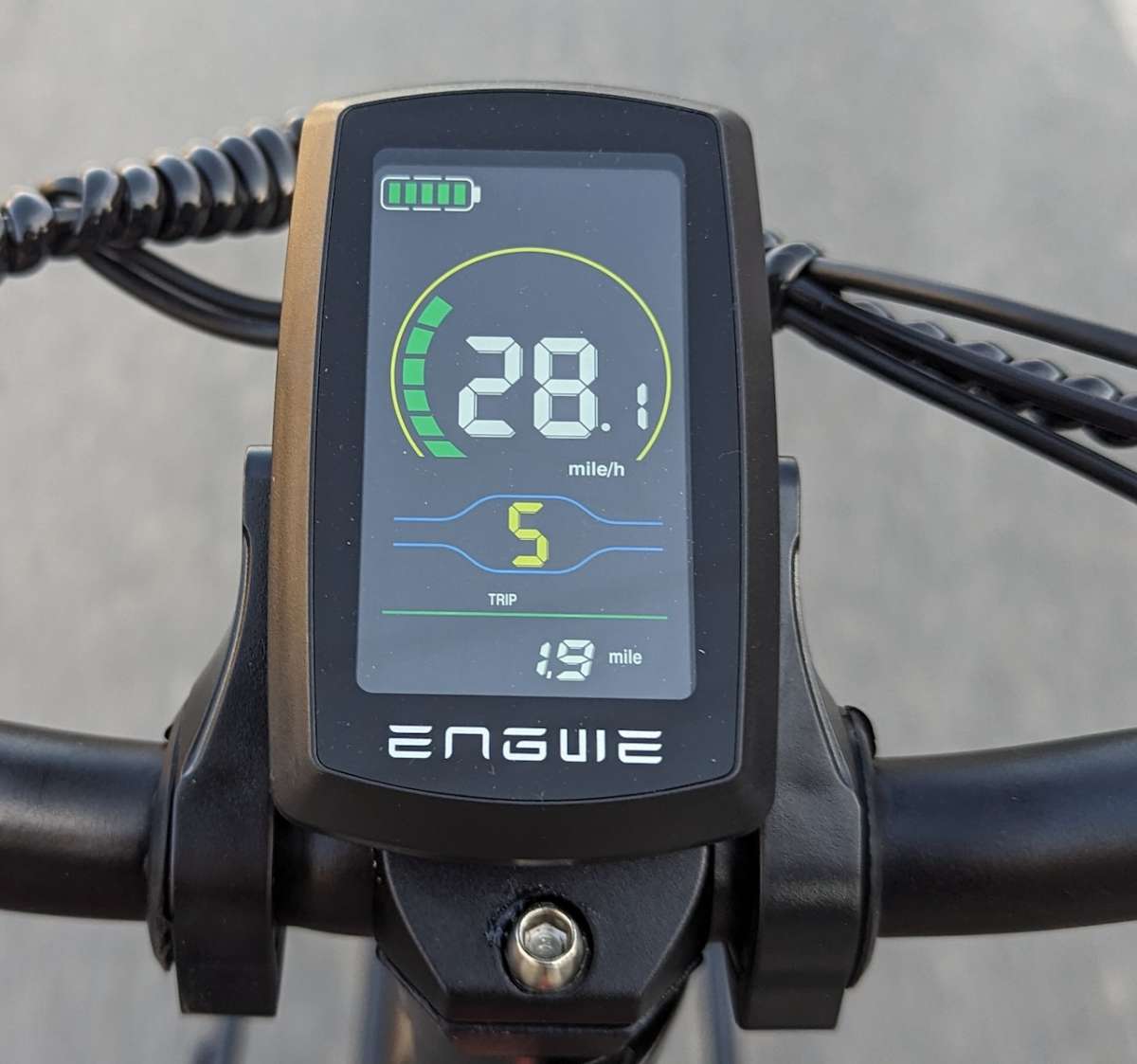
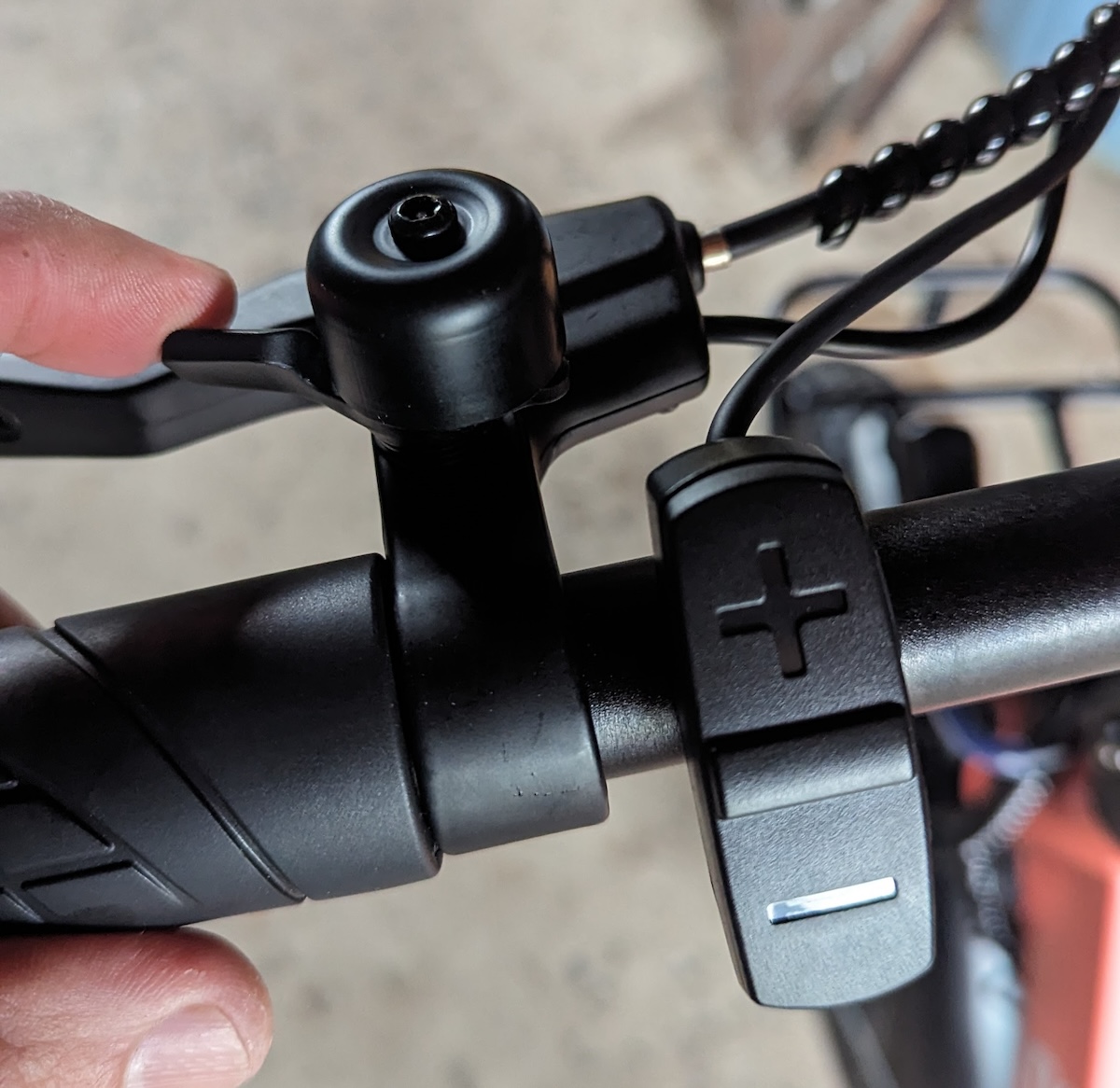
Weight: The new bike is actually lighter, which makes a difference when you are folding it up, because the next logical step after folding is to lift or carry the bike. The original L20 was 77 pounds. The 2.0 version is 68 pounds.
Tire size: The wheels on the original L20 were cool looking aluminum mag wheels, wrapped in 20” x 4” tires. The L20 2.0 has traditional spoked wheels wrapped in 20” x 3” tires. That might not seem like much of a difference, but I’m sure that’s where much of the weight savings comes from. But the smaller tires on the 2.0 version so make for a slightly harsher ride. But that’s perhaps overcome in the section below.
Suspension: Both the original and the new version of the L20 have capable front suspension forks. But the 2.0 version adds to that a suspension seatpost, which absorbs a lot of shock that would otherwise go right into your backside and up into your spine. It makes a difference. The smaller tire size helps the bike fold more easily.
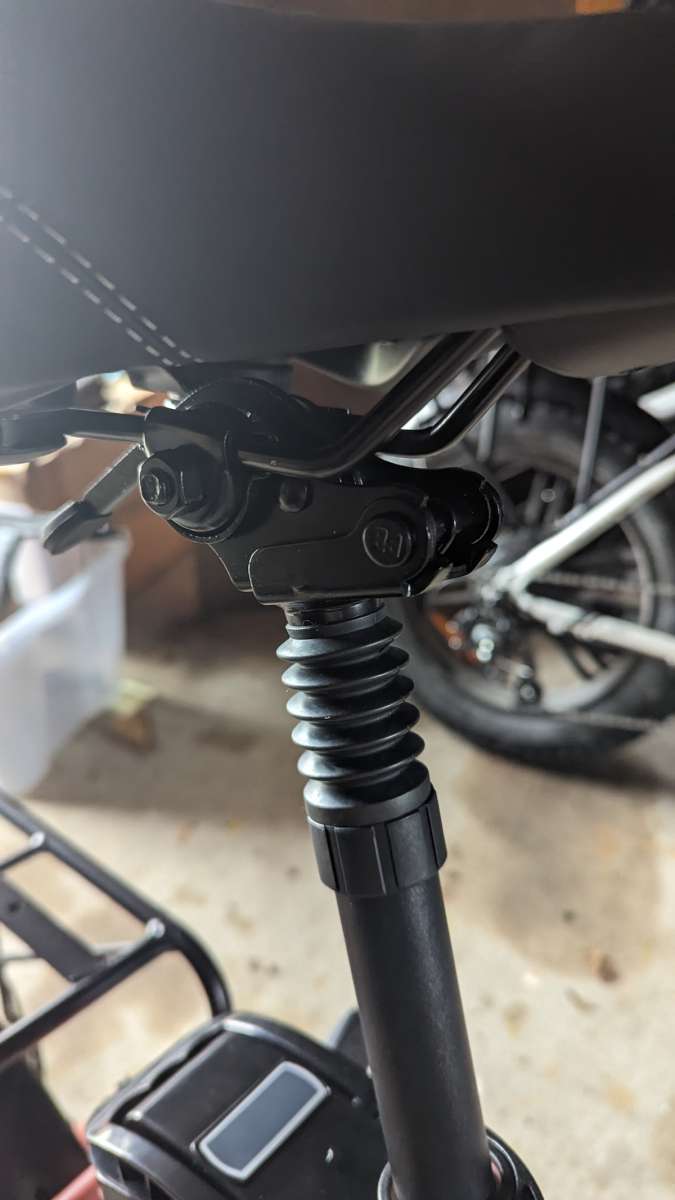
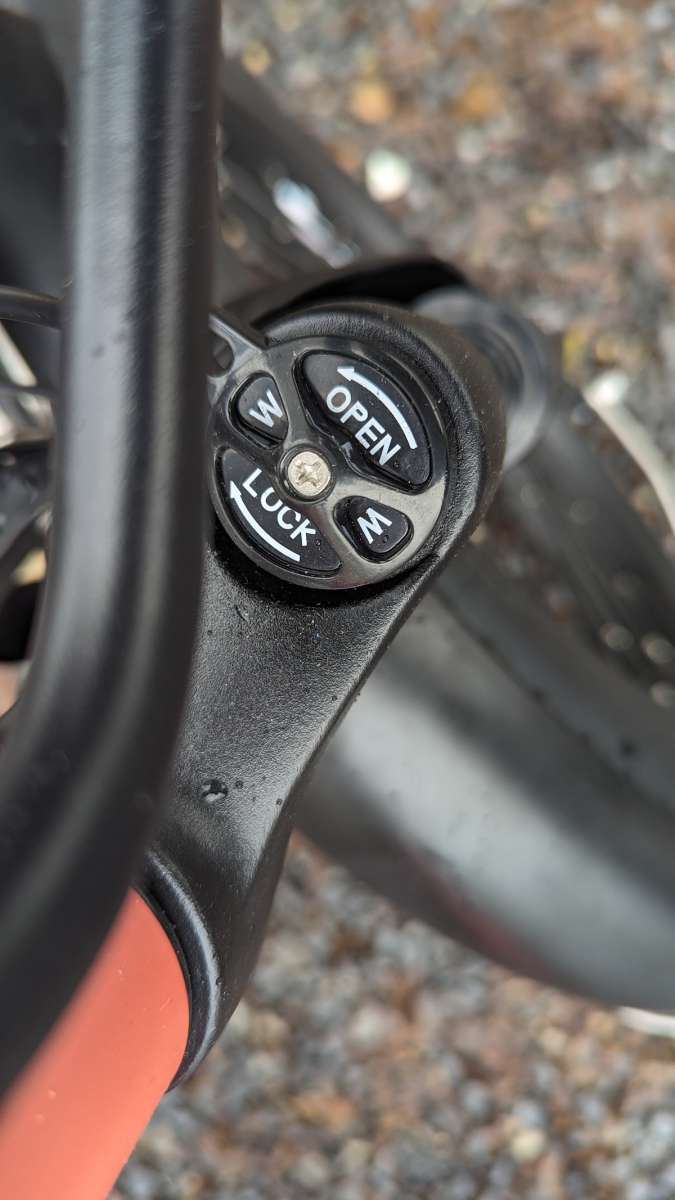
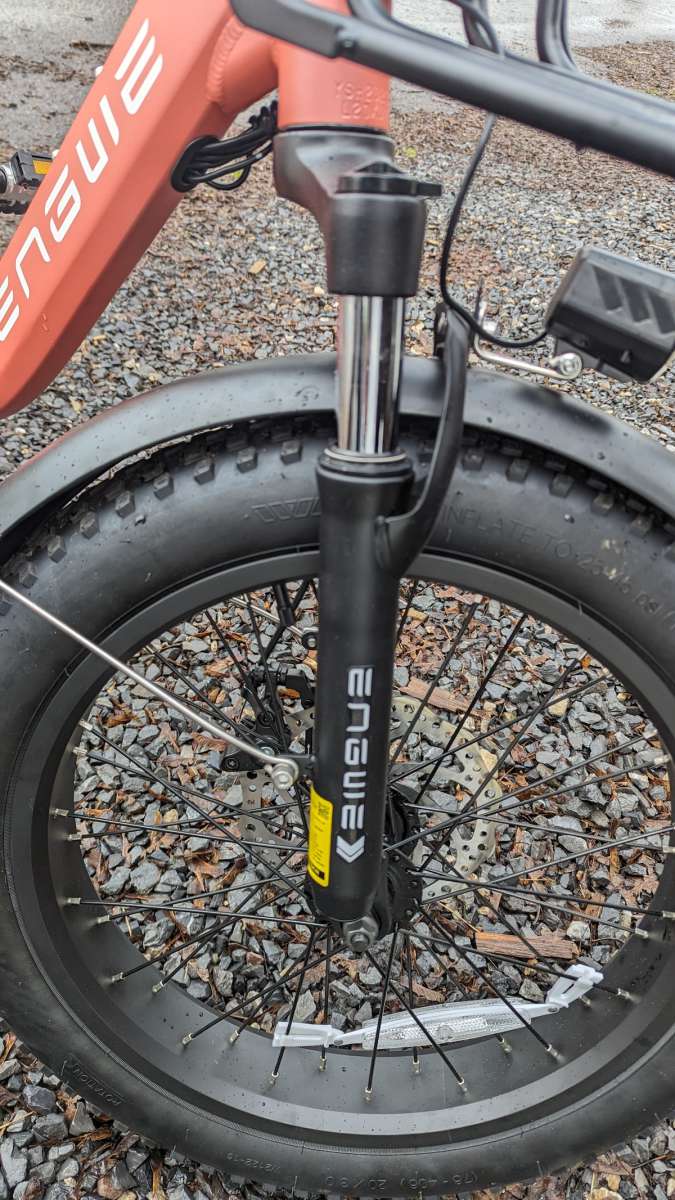
Racks: The original version has better racks. The rear rack on the original L20 was super beefy and bolted right to the rear of the frame. The Engwe L20 fat tire e-bike 2.0 version has an adequate rear rack, but it’s much more lightly built. But that probably added to the weight savings. The original front rack was basket-like, with sides and a turned-up front. The new version is just a flat rack, but it had to be that way to accommodate the folding.
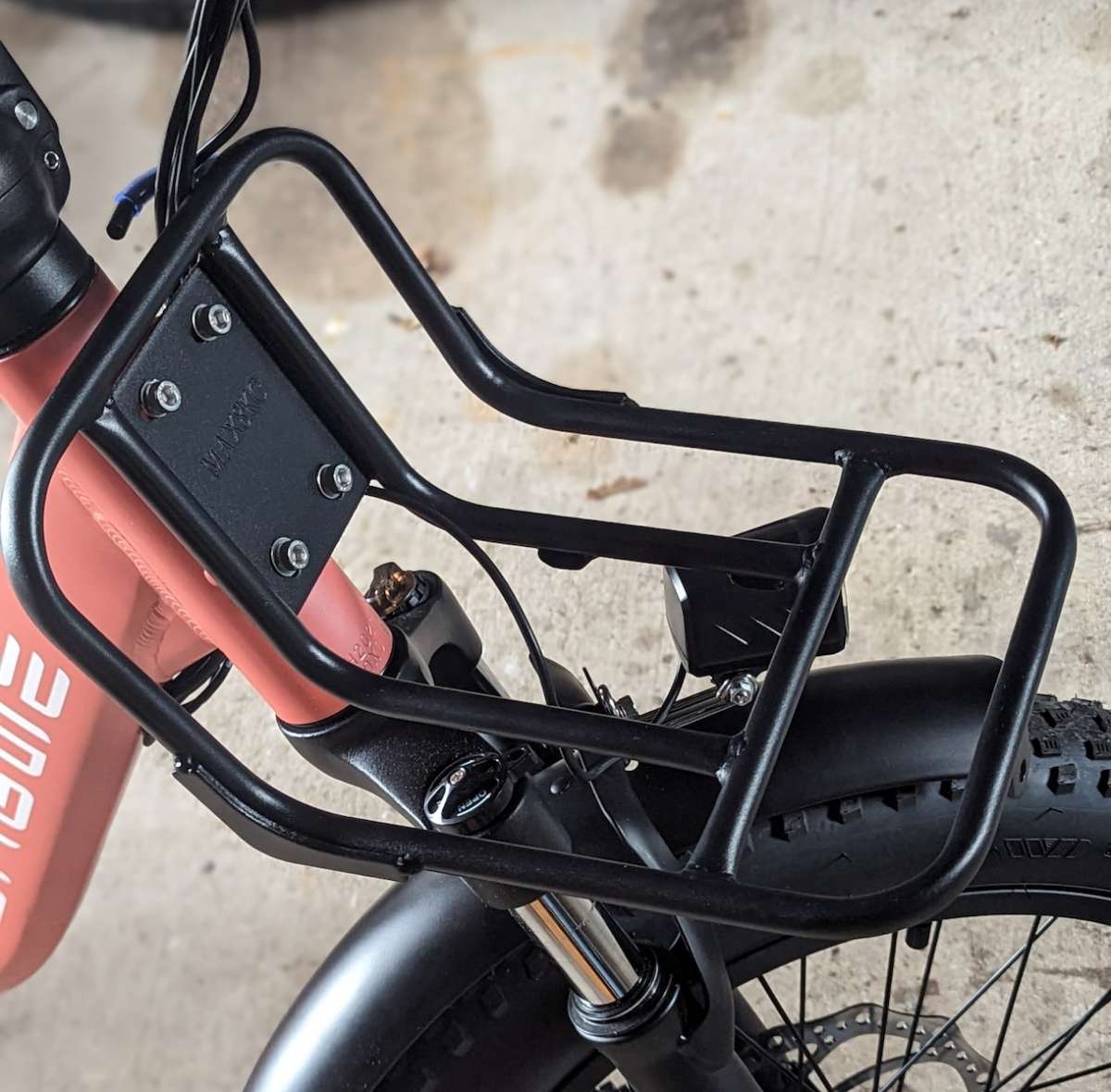
Range: Original claimed range was 90 miles. In my original testing, I never got anywhere close to that, but that’s what they claimed. The 2.0 version is claiming 80 miles, which I still think is optimistic. But with the smaller tires (less rolling resistance), and lighter weight, it’s probably a more reasonable estimate than the 90 miles for the original L20.
Speed: The original L20 topped out at around 25 mph in both pedal assist and throttle modes. The L20 2.0 tops out at 20 MPH in throttle mode, but spin the pedals a little, and it jumps up to 28 mph!
Build quality: With the original L20, there were some issues with build quality. The front rack mounts were welded slightly crooked, and the chain rubbed the rear tire in the lowest gear. With the 2.0 version, build quality seems much better. Welds are consistent and well done, everything lines up where it’s supposed to be, and the paint is evenly applied and attractive.
Price: The original L20 retailed for $999. The Engwe L20 2.0 fat tire e-bike comes in $200 less, at $799!
Assembly
The Engwe L20 2.0 fat tire e-bike is very well packaged. Once you unpack it, you will have quite a heap of trash!
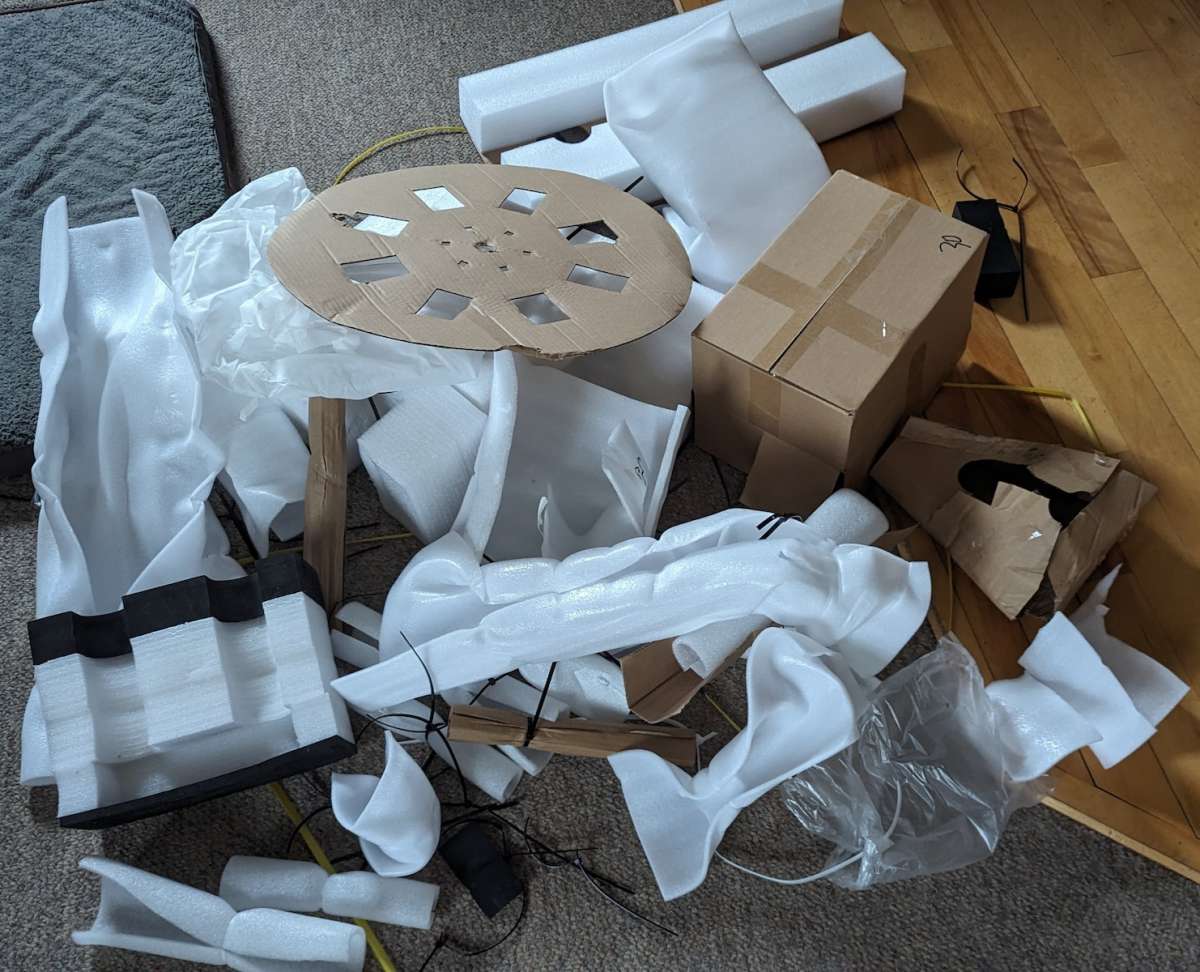
The assembly of the L20 2.0 is pretty straightforward. The manual provides adequate instructions, and all the hardware is already installed. If you know anything about bikes, it’s pretty intuitive. One of the assembly issues I had with the original L20 was that the pre-installed fasters were ridiculously tight. I was concerned that they might have been stripped, with the effort it took to remove them. The pre-installed fasteners on the new version were much more reasonably tightened and it made the assembly a bit easier.
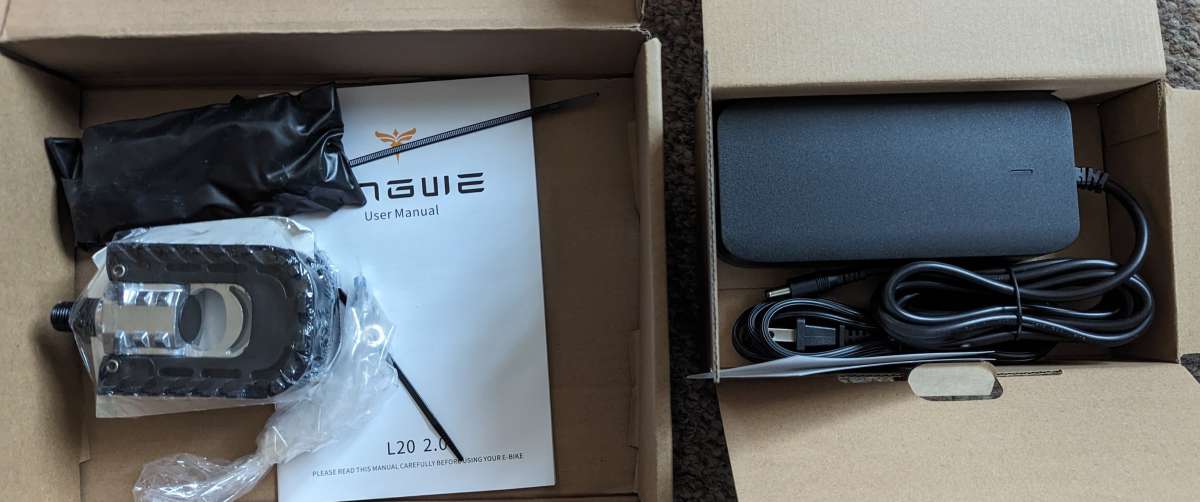
All told, it took me about 45 minutes to put the bike together. If you’re familiar with basic hand tools and home repairs, you can handle it. But it is a vehicle, and mounting the front wheel is part of the assembly, and you don’t want to get it wrong. You can always take it to a local bike shop and they will happily assemble it for a nominal charge, but the peace of mind you may get will make it worth it.
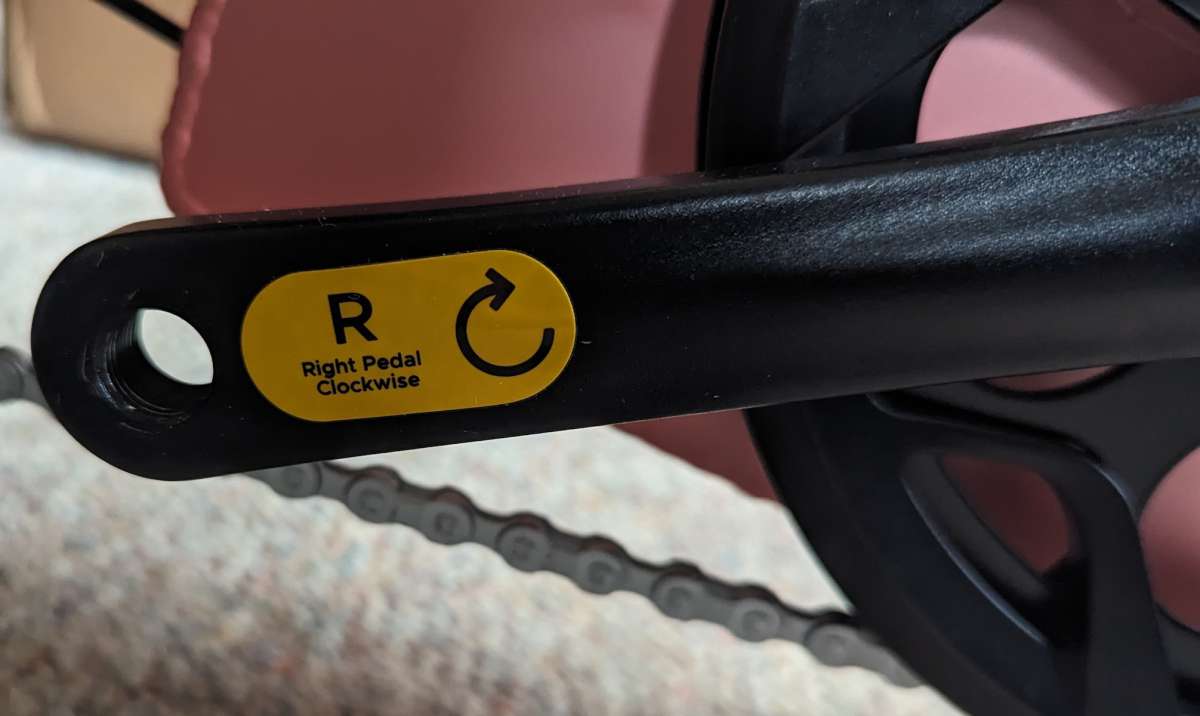
Performance
The Engwe L20 fat tire e-bike performs very much the same as the original L20. One notable difference is that it folds! The folding is simple and efficient, but you really have to ask yourself why you need to fold it. It’s probably still too big to fit the trunk of most cars. It may fit in the trunk of some SUV’s. Folding lets it fit into smaller spaces, if you don’t have much storage, but it’s definitely not something you’re going to fold in half and take on a city bus every day. It’s still almost 70 pounds!
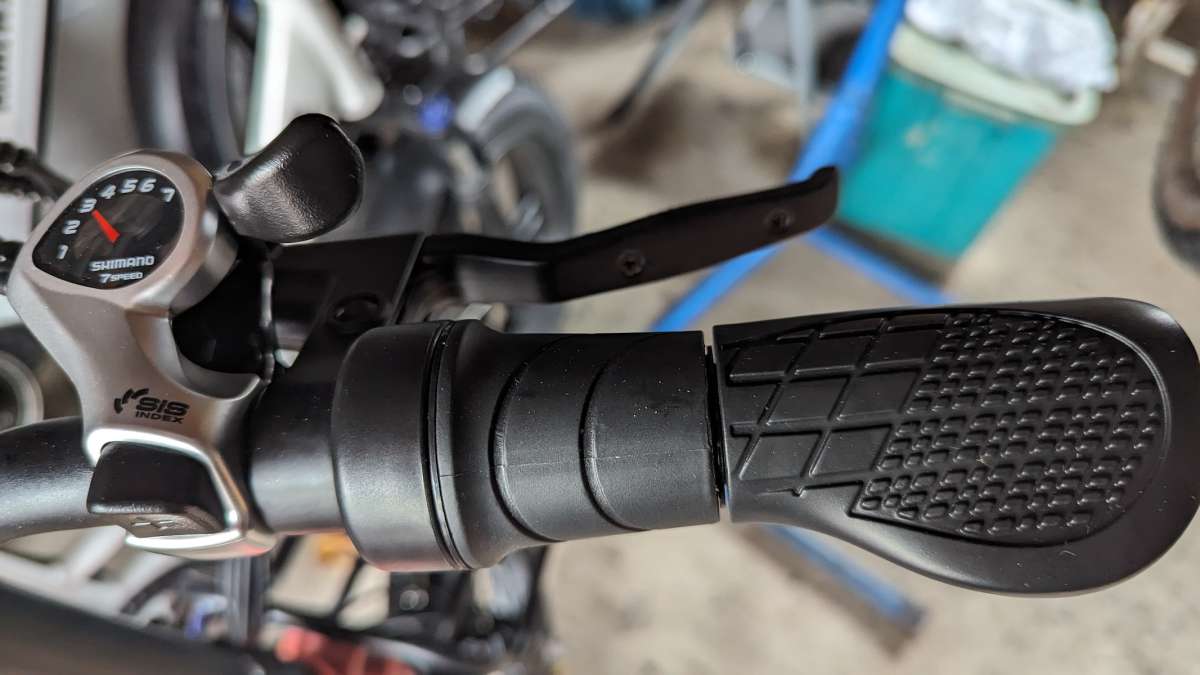
One of my favorite features was how fast it goes. It will kick along at 28 MPH if you pedal. This is awkward since the gearing does not allow you to really contribute at all over about 20 mph, but if you put the assist level on 5 and pedal (doing nothing!), the motor will power you along at almost 30 mph. The bike tops out at about 20 MPH using just the throttle.
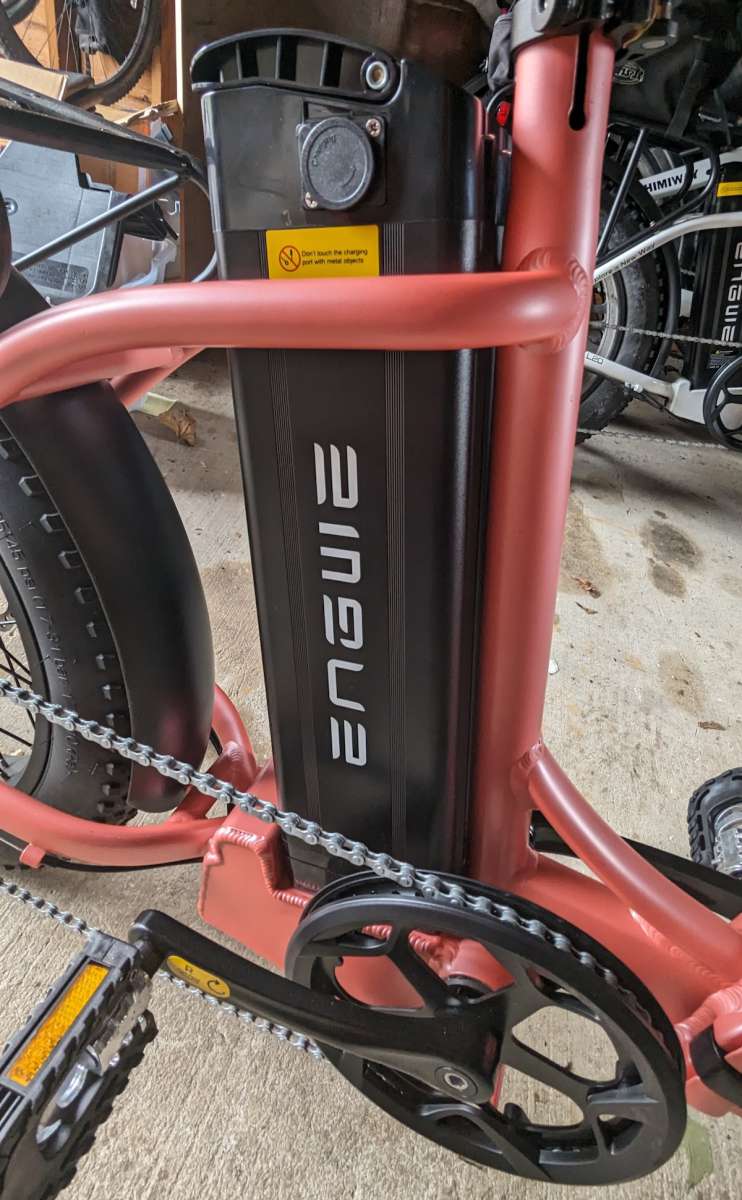
The controls for the e-bike are much improved over the original L20, and so is the display. The controls feature large + and – buttons to change the pedal assist level. There is a small power button on the front, and on the side of the controller, is a button to turn the lights on and off, as well as one to scroll through the various data screens on the display (trip meter, average speed, max speed, odometer). The display clearly shows the important stuff – battery level, speed, and assist level. It’s easy to see in the bright sun as well.
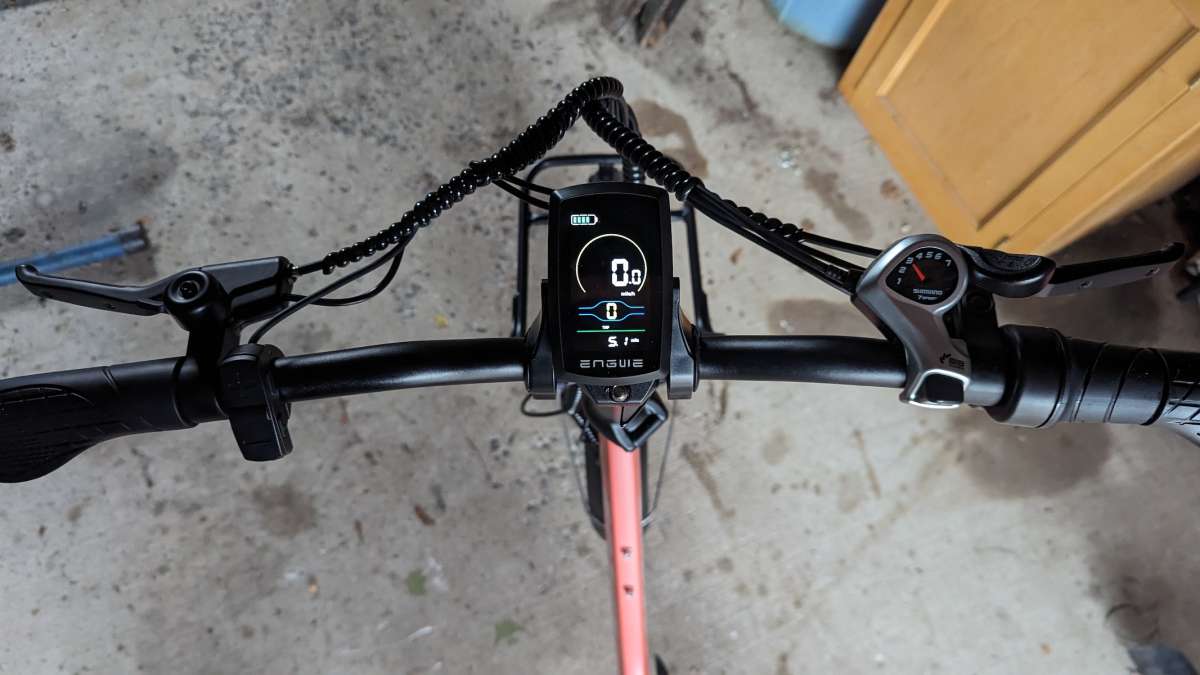
The ride is smooth and controlled. The smaller tires transfer a bit more road feel into the rider, but three inches is still plenty of tire to absorb shocks, even in a 20 inch size. The front suspension fork is adequate, and includes a lock-out if it’s just not your thing. But the real star is the suspension seatpost. That, combined with the wide tires, make for a very comfortable ride.
In general, the Engwe L20 2.0 fat tire e-bike is a very well performing e-bike for fun or commuting.
What I like about the Engwe L20 fat tire e-bike
- It folds!
- It’s cheaper than it was.
- It goes 28 MPH!
- They fixed all the issues I identified in my previous review
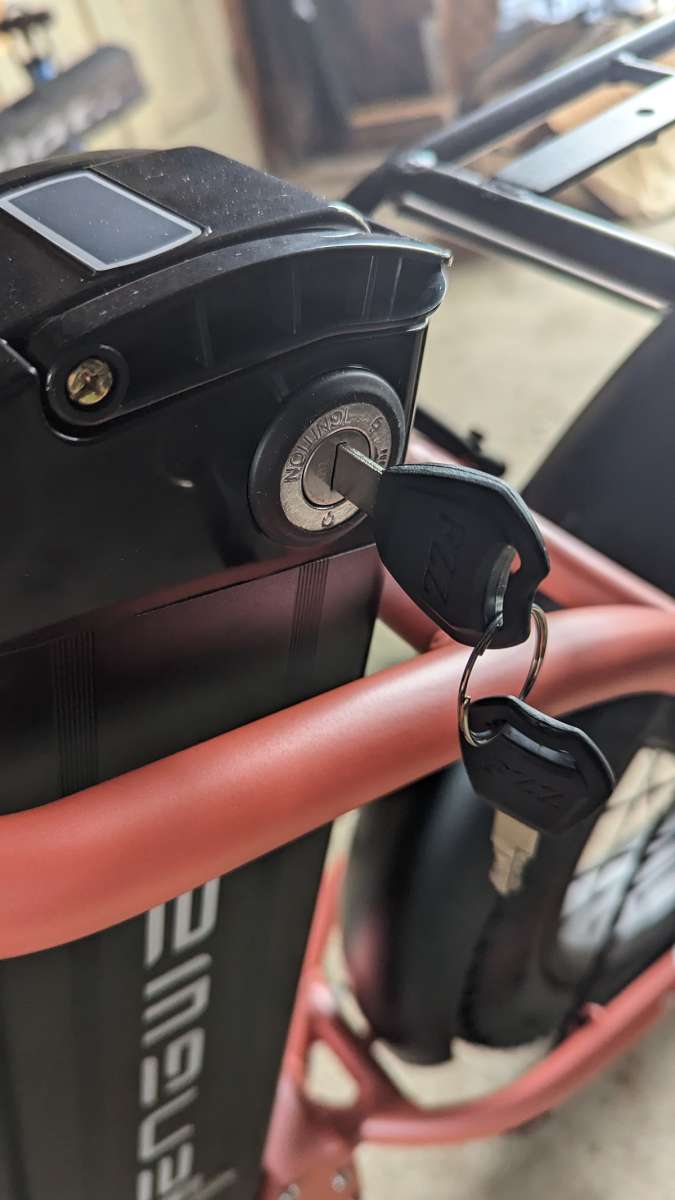
What needs to be improved
- Go back to the really beefy rear rack – it looked cool!
Final thoughts
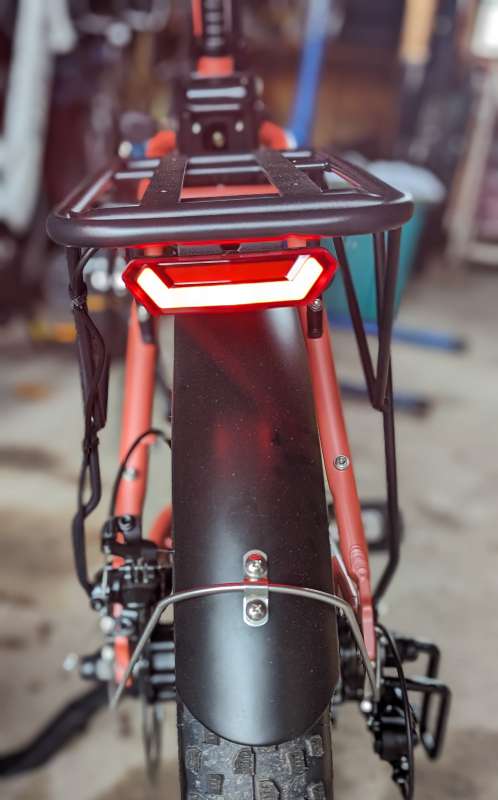
If you’re looking for a really nice compact foldable e-bike, you can’t go wrong with the Engwe L20 2.0. I could not have said that about the first generation, but sometimes, the second time is the charm. Check it out, and you won’t be disappointed.
Price: $799
Where to buy: Engwe or Amazon
Source: The sample for this review was provided by Engwe.

Gadgeteer Comment Policy - Please read before commenting
I would probably get an aftermarket mega-gear replacement to swap out with the single gear at the pedals. It would boost the top speed a little, perhaps. And it would make unassisted pedaling up hills a bit easier.